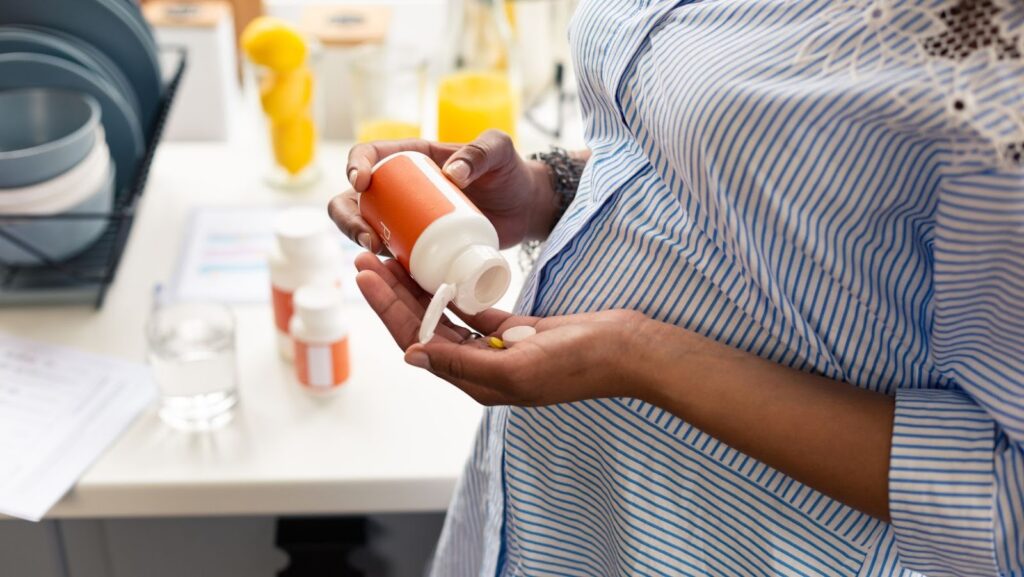
When you are pregnant, it is very important to make sure that you are getting enough vitamins and minerals. This is why many women take a prenatal vitamin supplement.
However, with so many different prenatal vitamin supplements on the market, it can be hard to know which one to choose. Here are a few things to look for in a good prenatal vitamin supplement.
It should contain folic acid
Folic acid is a very important nutrient for pregnant women. It helps to prevent birth defects of the brain and spine.
The recommended amount of folic acid for pregnant women is 400 micrograms per day.
It should contain iron
Iron is important for pregnant women because it helps to prevent anemia. Anemia can cause fatigue and other problems during pregnancy.
The recommended amount of iron for pregnant women is 27 milligrams per day.
It should contain calcium
Calcium is important for pregnant women because it helps to build strong bones and teeth.
The recommended amount of calcium for pregnant women is 1000 milligrams per day.
It should be free of harmful chemicals
Many prenatal vitamin supplements contain harmful chemicals, such as mercury, lead, and other toxins.
These chemicals can be very dangerous for both the mother and the developing baby. Therefore, it is important to choose a supplement that is free of these harmful chemicals.
It should be affordable
Prenatal vitamin supplements can be quite expensive. However, it is important to choose a supplement that is affordable. There are many good quality prenatal vitamin supplements on the market that are very reasonably priced.
When choosing a prenatal vitamin supplement, it is important to look for one that contains all of the nutrients that you need. It is also important to choose a supplement that is free of harmful chemicals and is affordable. With so many different prenatal vitamin supplements on the market, it is important to do your research to find the best one for you and your baby.
What are the benefits of taking a prenatal vitamin supplement
Prenatal vitamin supplements have many benefits. They can help to prevent birth defects, anemia, and other problems during pregnancy. They can also help to build strong bones and teeth. Prenatal vitamin supplements are an important part of a healthy pregnancy.
It helps to make sure that both the mother and the developing baby are getting all of the nutrients they need. Therefore, it is important to choose a supplement that is high quality and contains all of the nutrients that you need.
When to start taking a prenatal vitamin supplement
Most women should start taking a prenatal vitamin supplement as soon as they find out they are pregnant. Prenatal vitamin supplements are an important part of a healthy pregnancy. They can help to prevent birth defects, anemia, and other problems during pregnancy.
Therefore, it is important to start taking them as soon as you find out you are pregnant.
How to take a prenatal vitamin supplement
Most prenatal vitamin supplements come in the form of pills or capsules. They can be taken with or without food. It is important to follow the directions on the bottle.
Some women may have trouble taking pills or capsules. If this is the case, there are some alternative forms of prenatal vitamin supplements available. These include liquids, gummies, and powders.
can men take prenatal vitamins
Yes, men can take prenatal vitamins. Prenatal vitamins are not just for pregnant women. They can also be beneficial for men. Prenatal vitamins can help to improve the health of the sperm and increase the chances of conception.
Therefore, it is a good idea for men who are trying to conceive to take prenatal vitamins. Always speak with a healthcare professional before taking any type of supplement. And that’s it! These are just a few of the many things to consider when choosing a prenatal vitamin supplement. By doing your research and speaking with your healthcare professional, you can find the best supplement for you and your baby. It’s essential that you provide your baby with proper nutrition and supplementation during pregnancy and after childbirth. For more information, visit The Milky Box.












